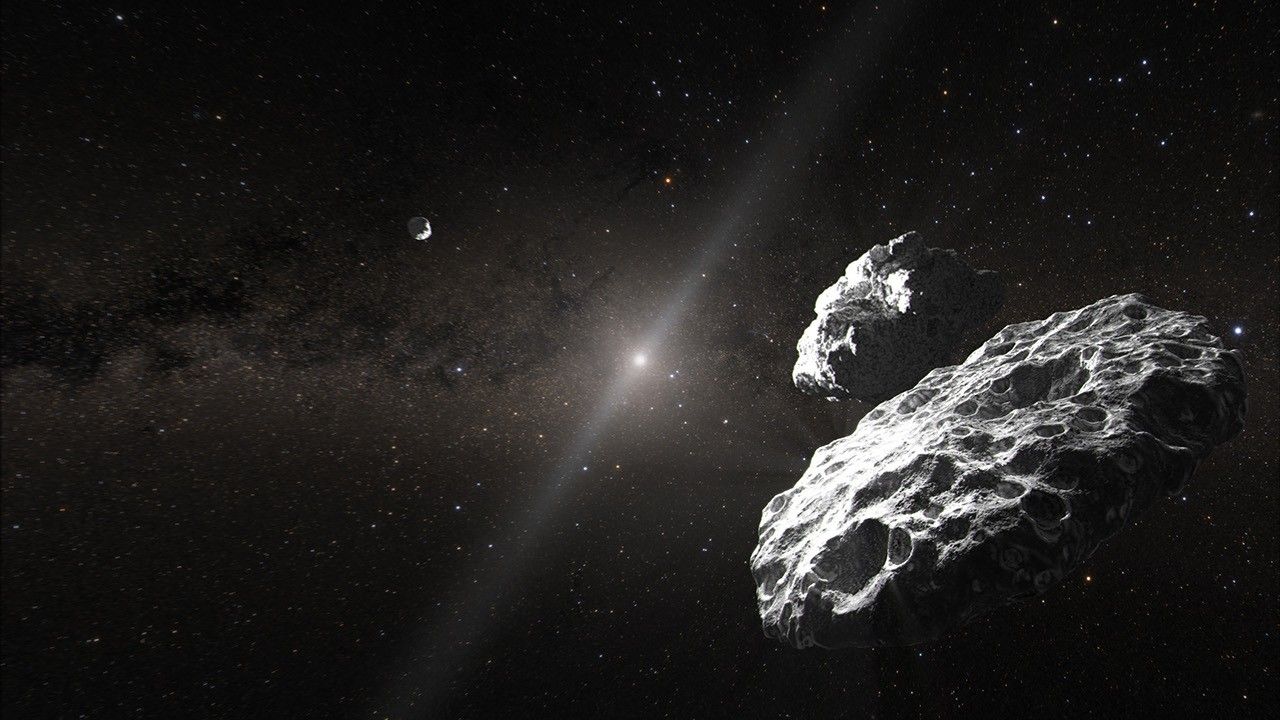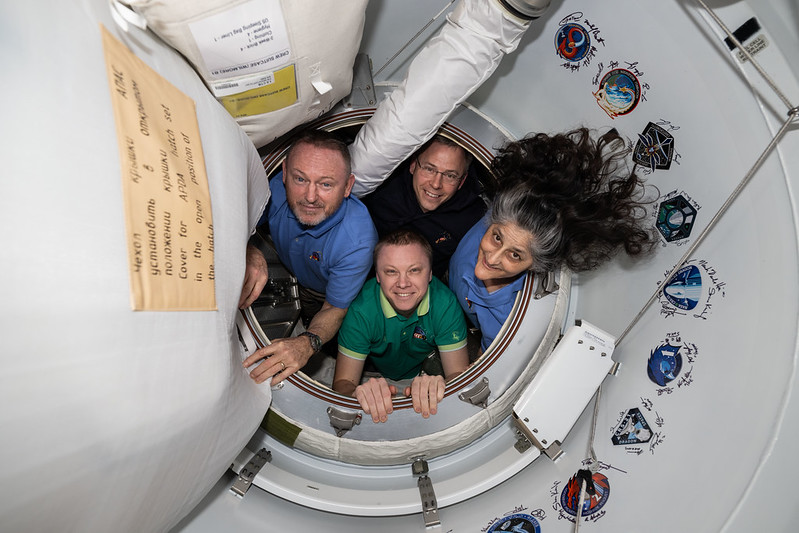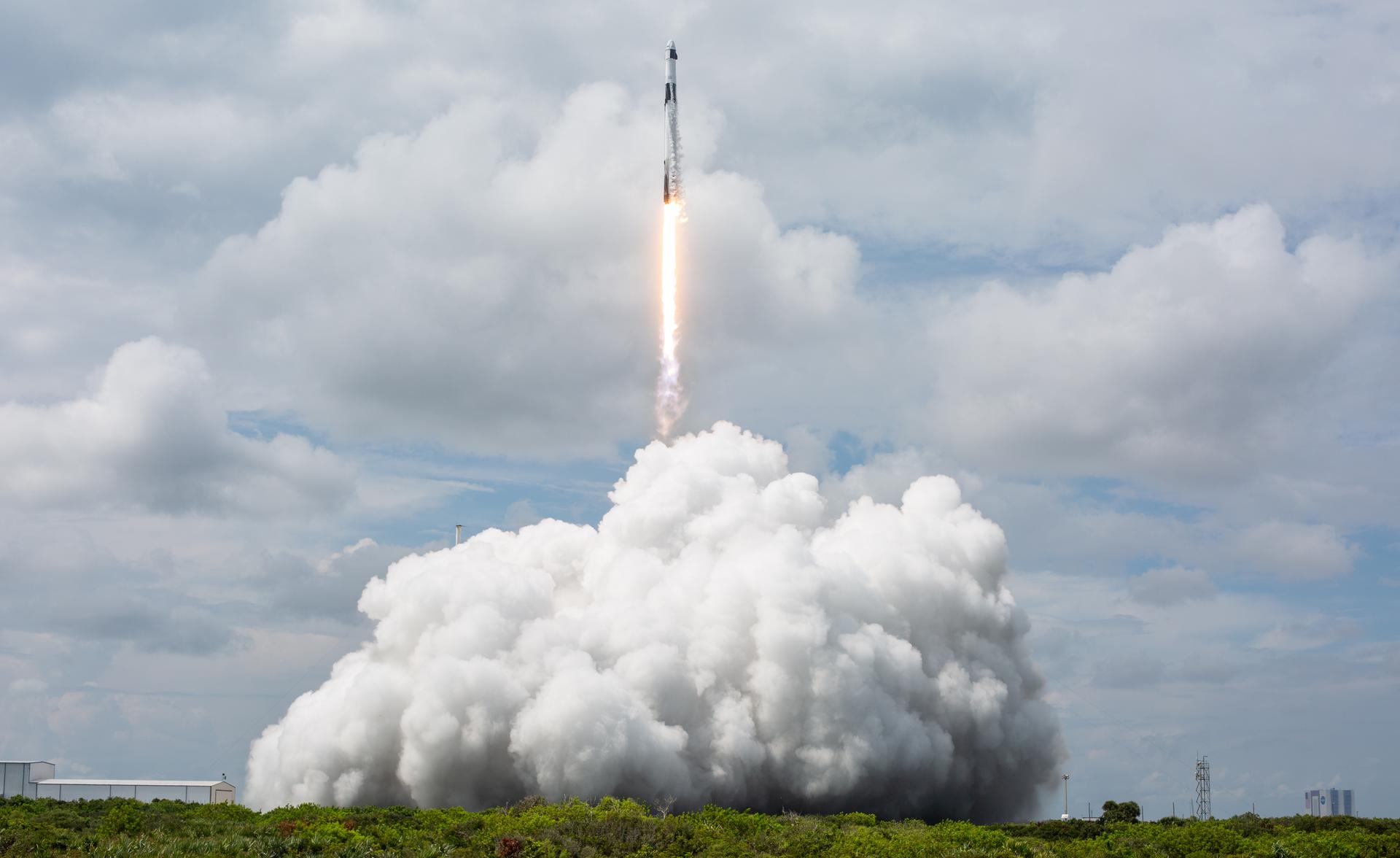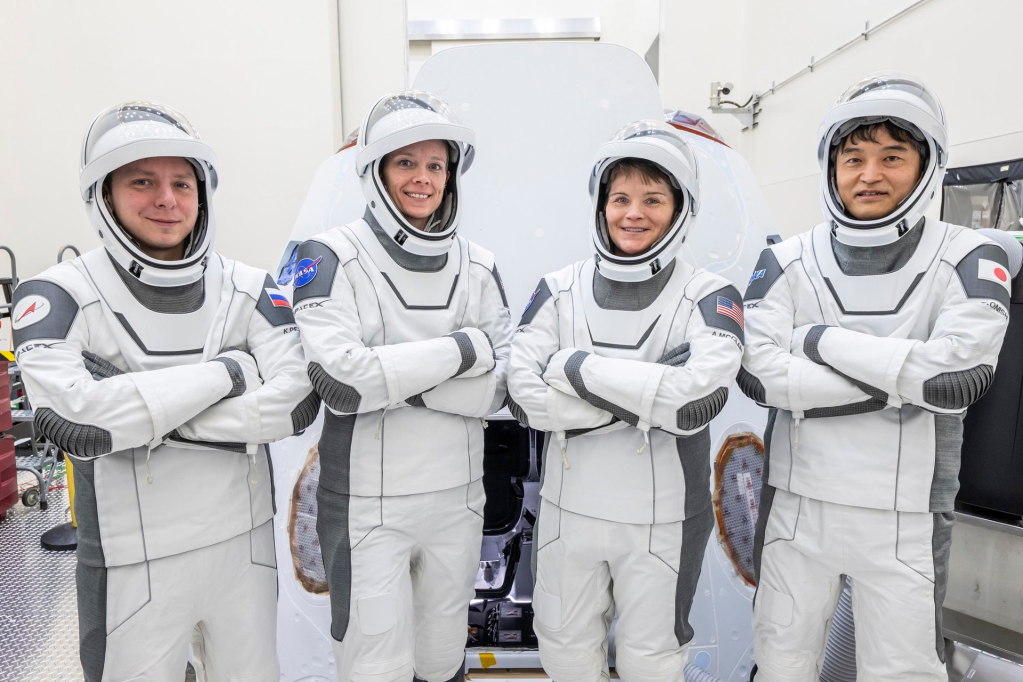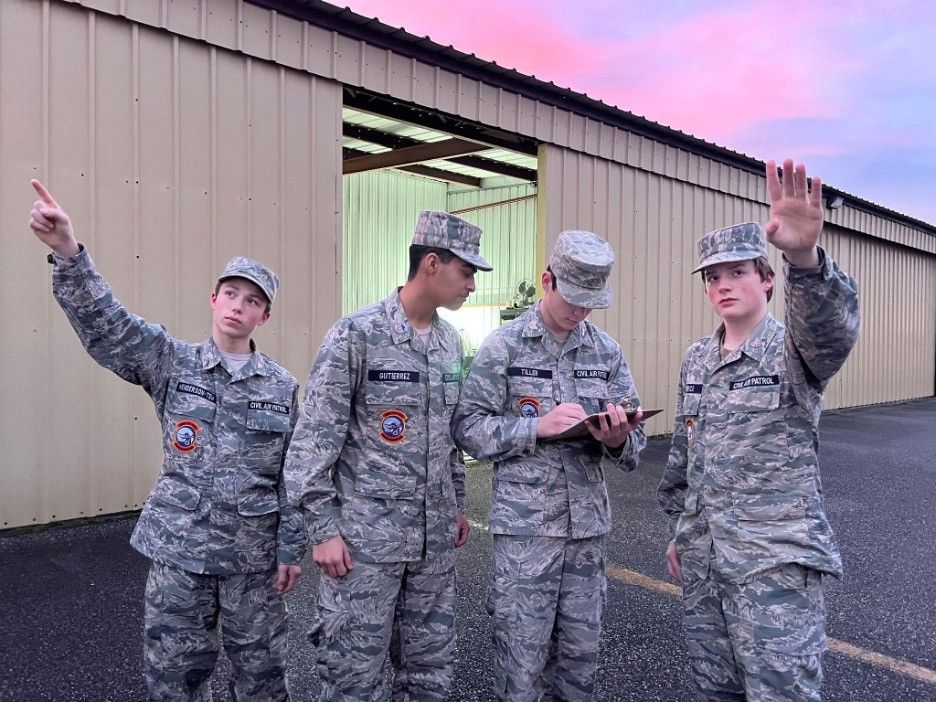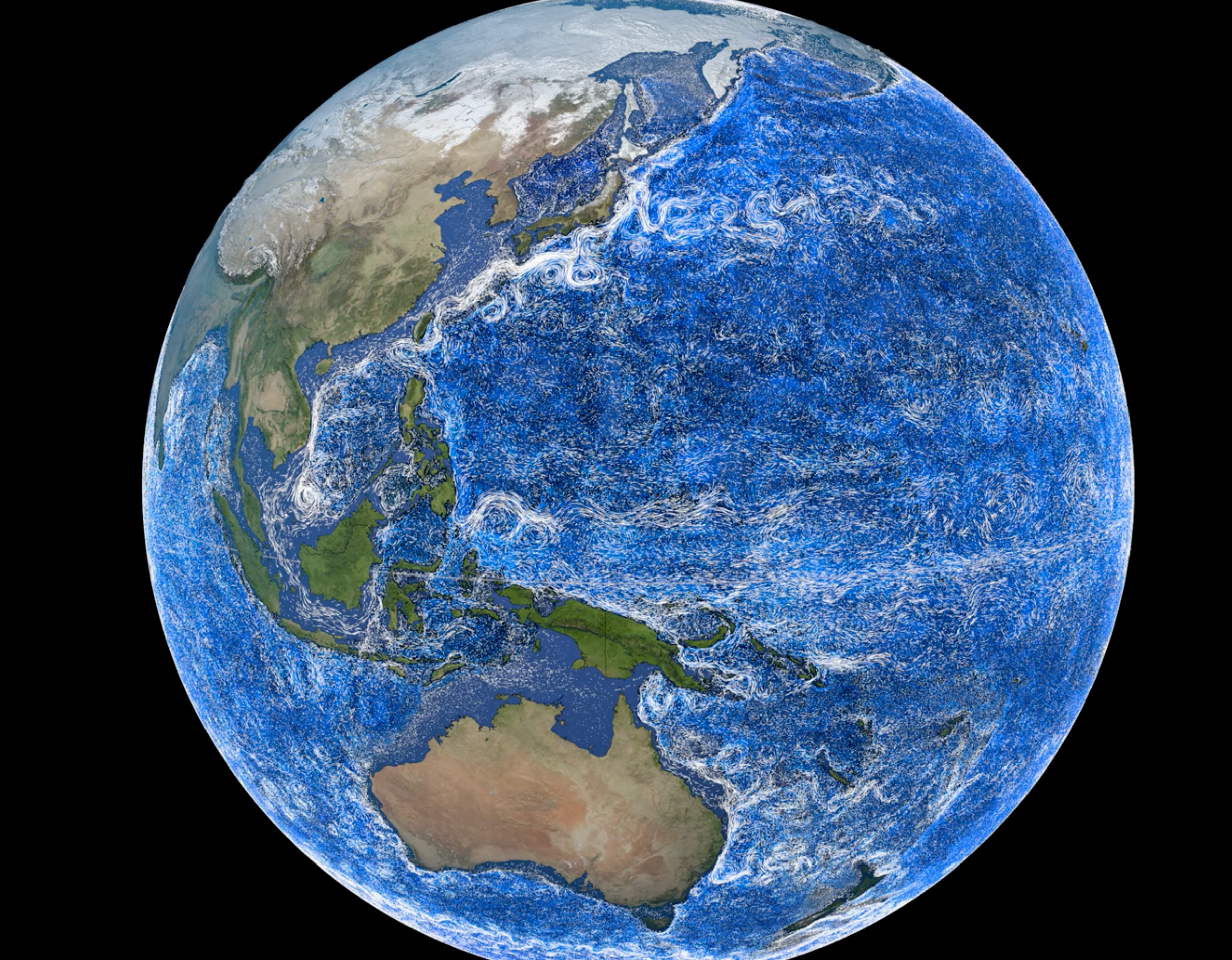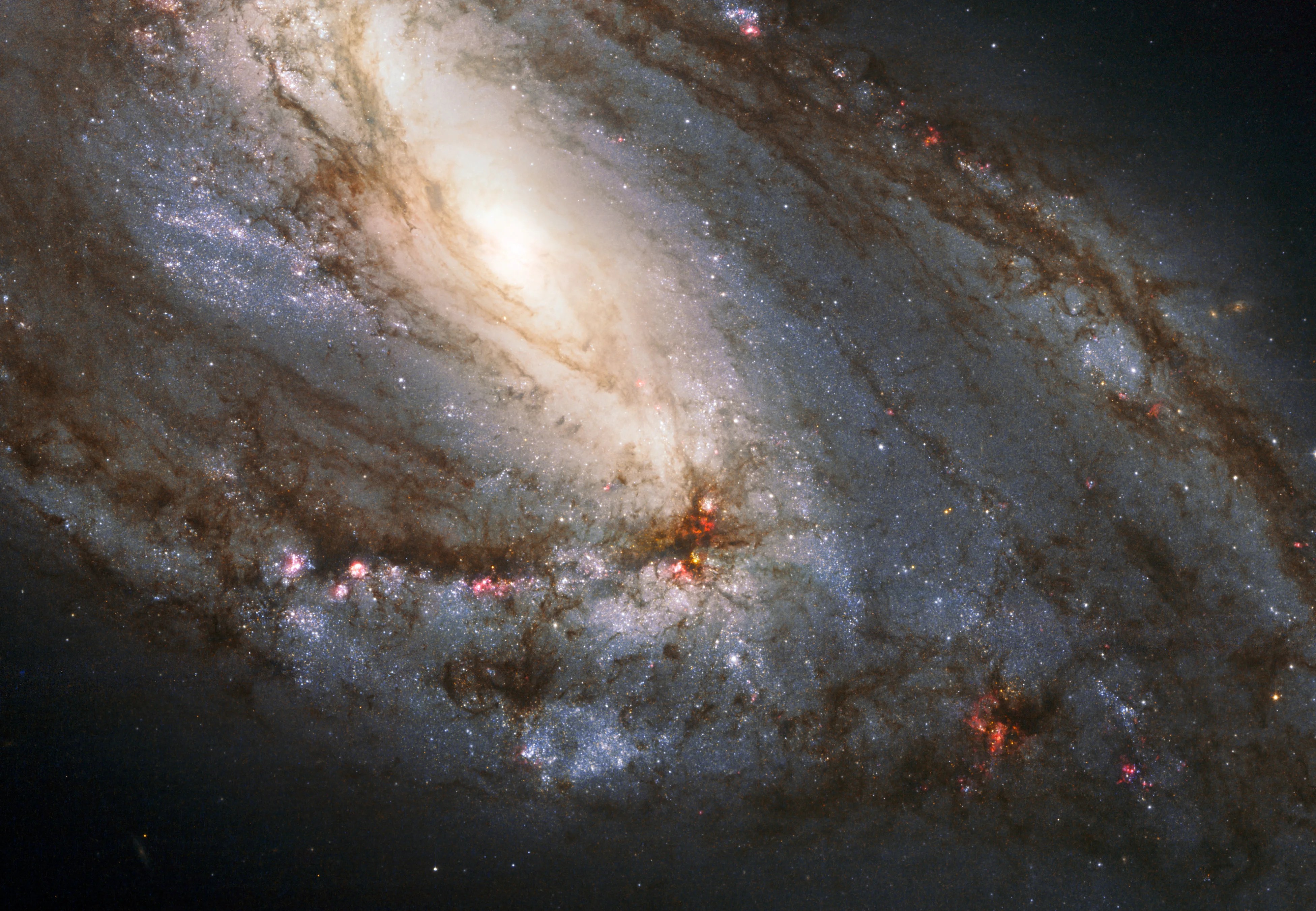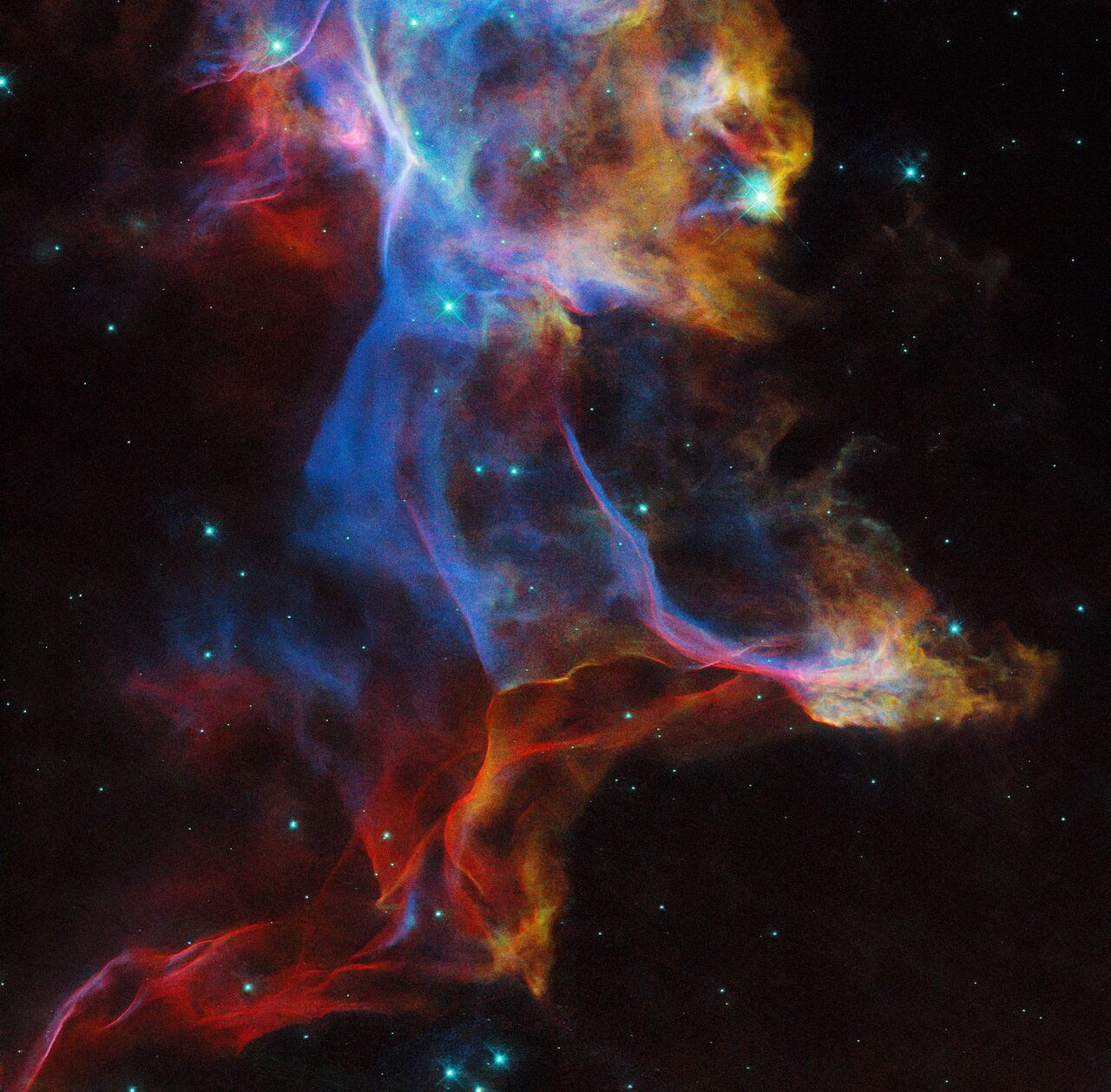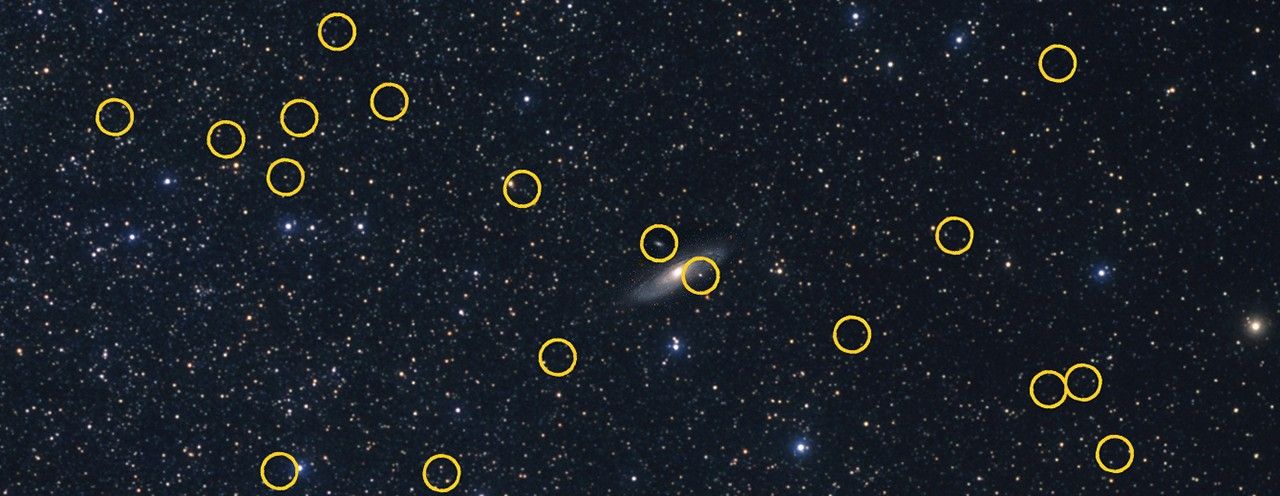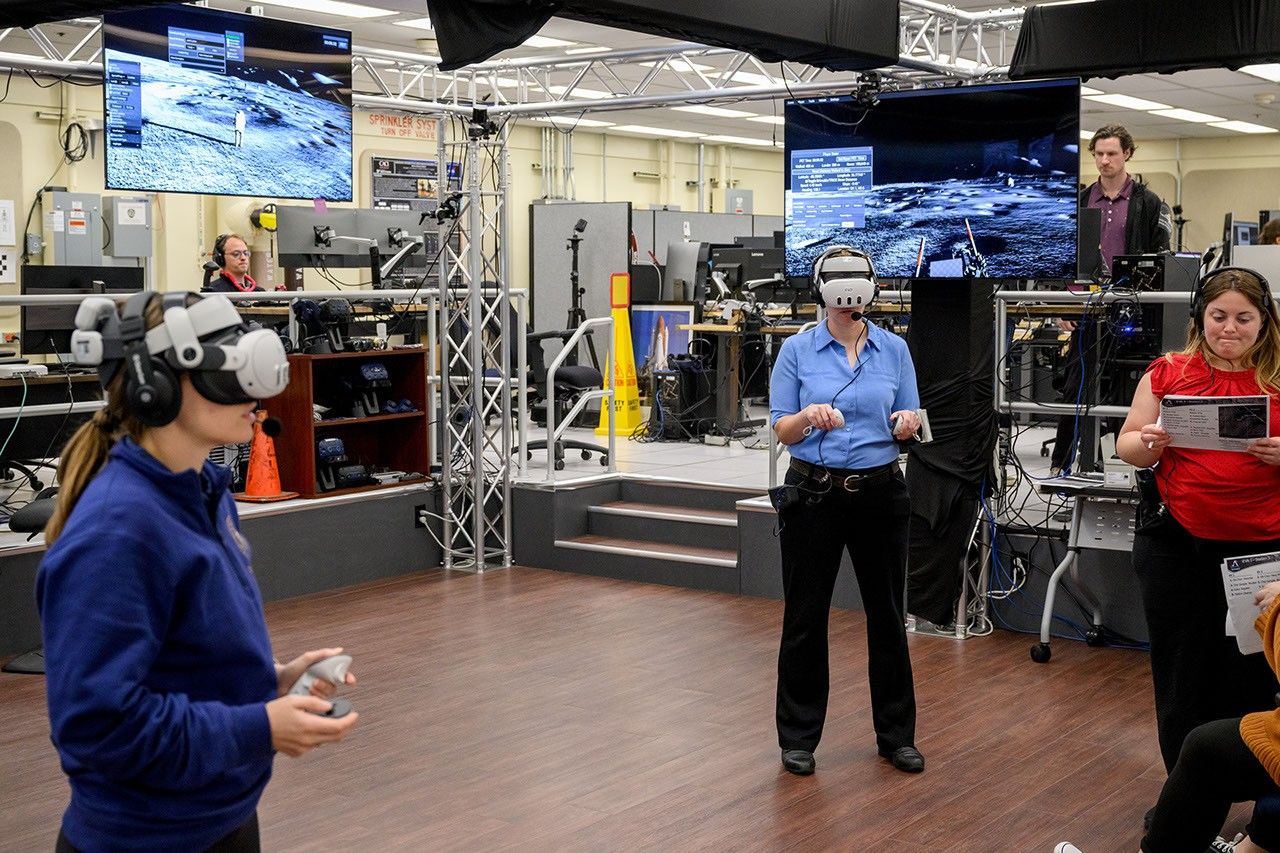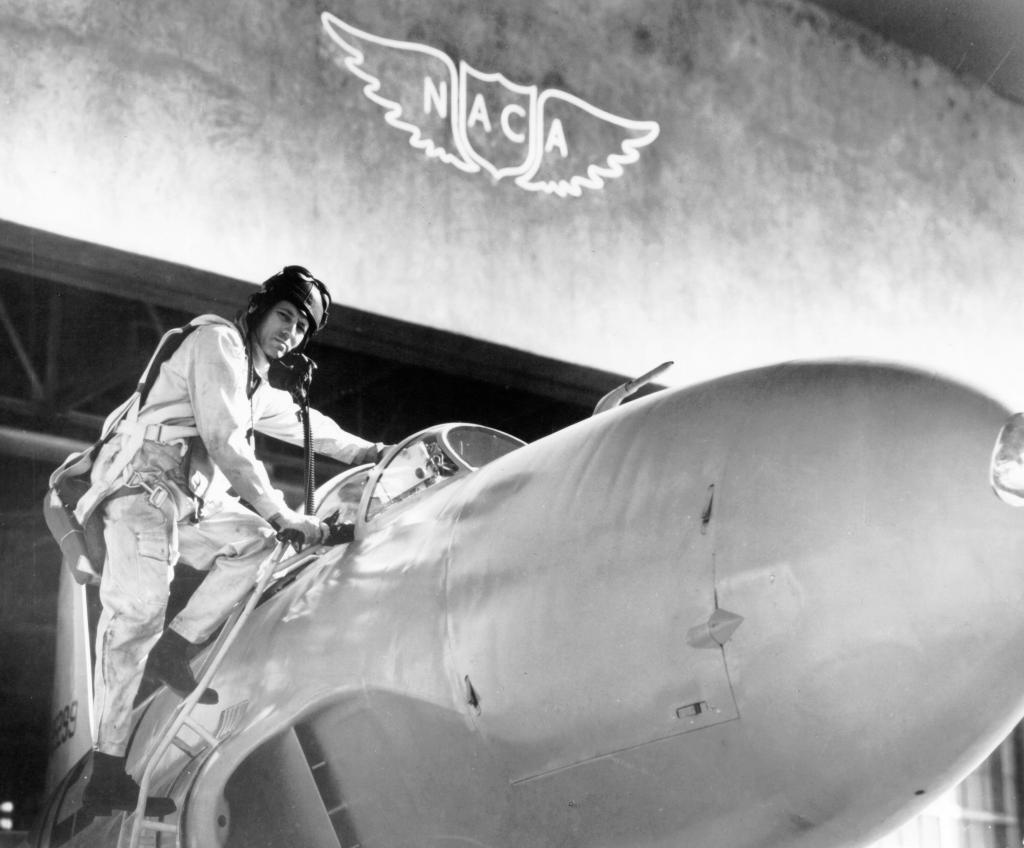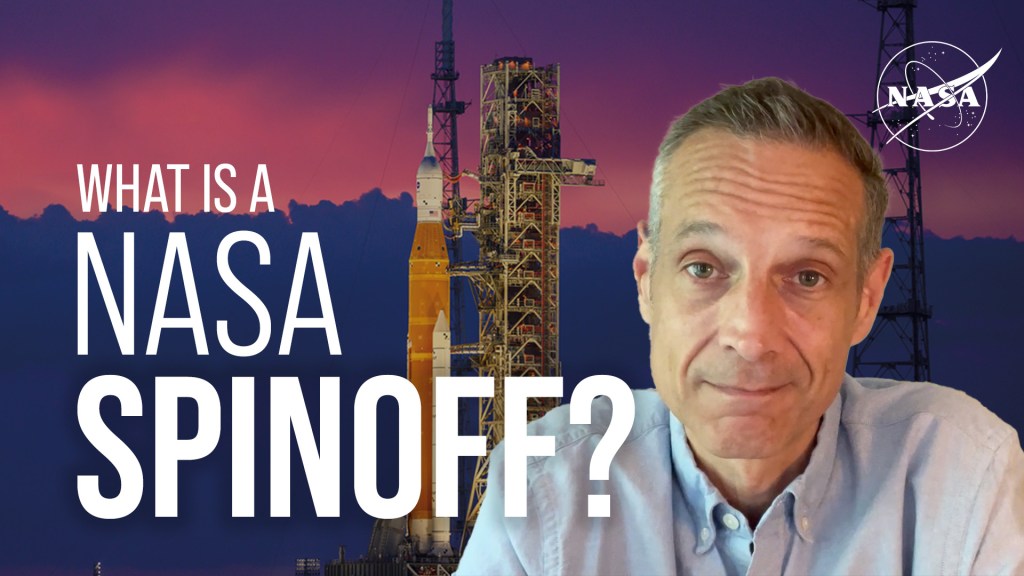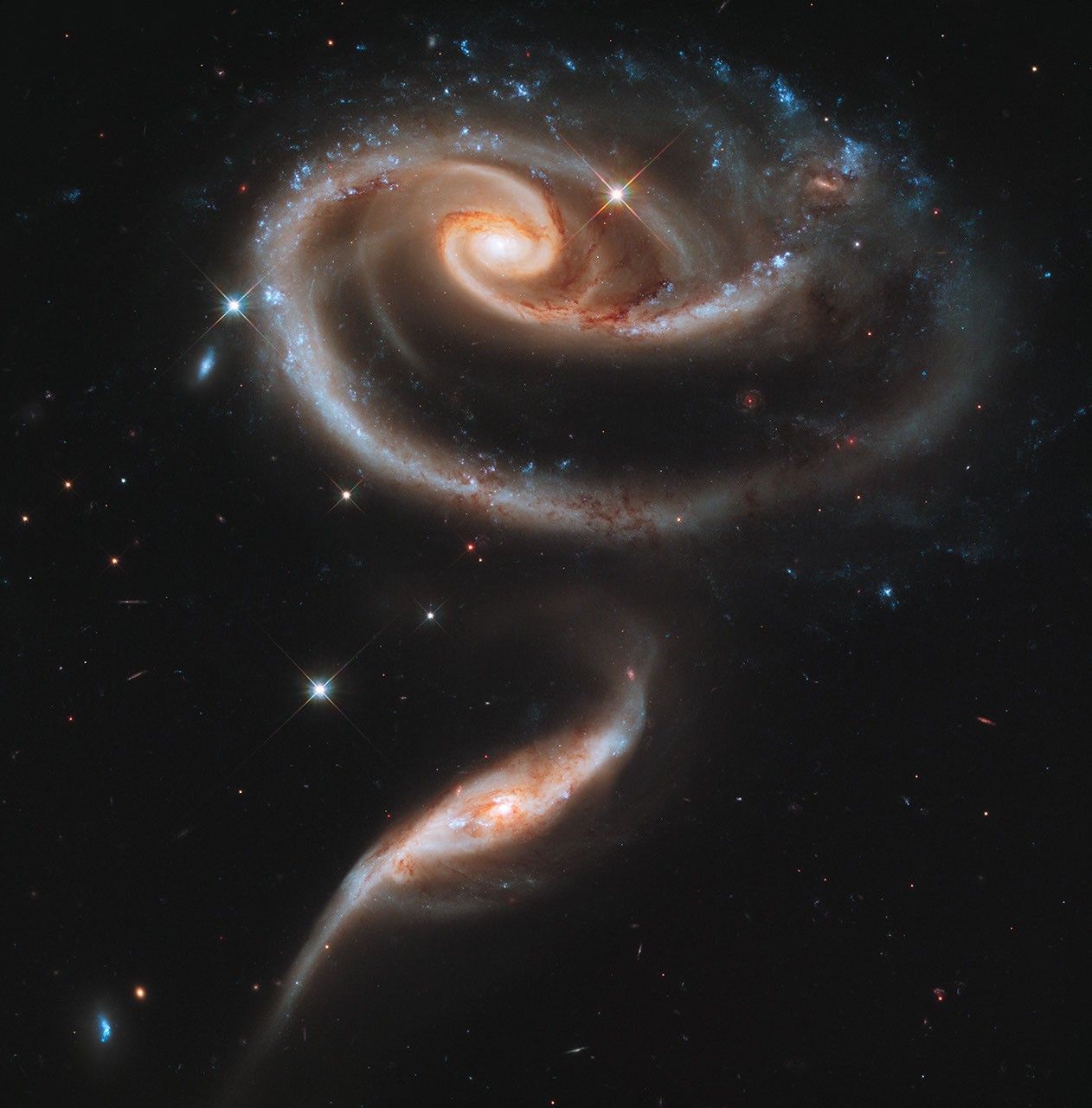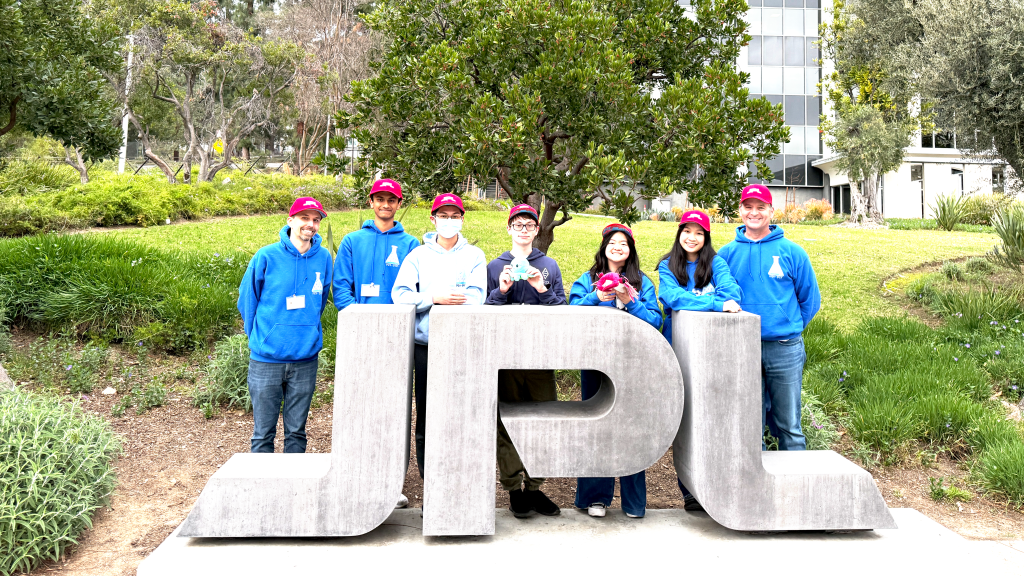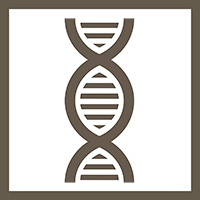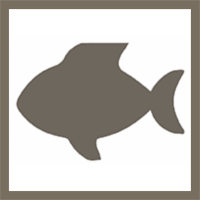- Analysis Working Groups (AWG)
- Charter
- Current AWG Members
- AWG Forum
- AWG Annual Reports: 2018 2019
- AWG Workshops: 2018 2019 2021 2023
- AWG Symposia: 2022 2023 2024
GeneLab’s Analysis Working Groups’ 2019 Annual Report
RESEARCH IN REVIEW YEAR 2
The NASA GeneLab project established GeneLab Analysis Working Groups (AWGs) in 2018 for the sole purpose of optimizing the processing of raw spaceflight and ground-related omics data from the GeneLab repository, maximizing the generation of new knowledge from these rare and complex datasets, and improving the effectiveness of the GeneLab Data System (GLDS) through extensive utilization of analytics. The groups represent four model organism areas of expertise: plants, multi-omics/systems biology, microbes, and animals (mammals, non-mammals).
AWG members are comprised of researchers, principal investigators, professors and students, all who join on a volunteer basis. The primary activity of each AWG is to establish analytical processes to generate higher-order data from data housed in the GeneLab Data System with relevance to one or more specific application areas. For example, the mammalian AWG analyzes all data relevant to mammalian systems (human, mouse, rat, etc.).
By participating in a GeneLab Analysis Working Group, investigators join a group of scientific excellence and may have the opportunity to co-author a landmark paper. They innovate new data and analysis standards for the community and develop relationships that could lead to additional collaborations.
DEMONSTRATING SCIENTIFIC PROGRESS
In 2019, the GeneLab AWGs consisted of four groups comprising more than 120 volunteer members from around the world. In this 2019 annual report, the AWGs amply demonstrated their efforts to advance omics analysis of spaceflight and ground-related data from experiments conducted aboard the International Space Station and shuttle and address significant questions in space life sciences. All groups participated in the second AWG workshop and via teleconferences throughout 2019. A summary of each AWG’s 2019 accomplishments, goals, and new leadership follows.
AWG Major Milestones
AWG workshop: The second annual AWG workshop and showcase was held in Denver, CO, on November 19, 2019, a day before the ASGSR’s annual conference officially began. During the closed morning session AWG members gave status reports, discussed processing pipelines and provided input on 12 roundtable topics. The afternoon session, the AWG Showcase, was open to all ASGSR conference attendees. It featured talks by each of the four AWG groups, and demonstrated projects, tools, and papers in development. Workshop participants comprised over 50 AWG members and included scientists at all levels (PIs, post-docs, students) from 3 NASA centers, as well as universities and institutes in the U.S. and internationally. Members reached consensus on the following:
- Analysis pipelines will be used to process raw data in GeneLab’s repository into high-order data.
- Requirements for visualization and implementation strategies.
- The need for processed data and every intermediate data product.
- Use Galaxy as a working and teaching tool.
- Identify new datasets to be added to the data repository.
Manuscripts: AWG investigators published six manuscripts using data in GeneLab.
Interns: GeneLab summer interns worked with the AWGs on developing computational pipelines for the analysis of biological data in the GeneLab data repository. The output of these pipelines are available on GeneLab, enabling anyone to make discoveries about how biological systems react to spaceflight.
Plant Biology
Leads: Richard Barker, UW Madison; Colin Kruse, Los Alamos National Lab
Accomplishments 2019
The Plant Analysis Working Group is comprised of international research scientists and professors that meets regularly to share and discuss the latest developments in AstroBotany – the discipline of botany concerned with interactions between plant biology and space environment. The group’s meta-analysis research focused on the transcriptional response of Arabidopsis to spaceflight and the integration of epigenetics, proteomics, and glycomic datasets to make predictions and guide future research into the metabolic response of crops in orbit.
New international collaboration with the European Bioinformatics Institute’s Expression Atlas Team: Collaborators of the European Bioinformatics Institute’s Expression Atlas Team generated the NASA GeneLab Expression Atlas to incorporate experimental data. Upon examination of the meta-data from all the studies, the decision was made to incorporate only those samples that fit the team’s criteria (e.g., 3 biological repeats) as outlined in Barker et al., (2020) below.
European Space Agency/NASA GeneLab Exchange Program Pilot Study: International exchange student Alicia Villacampa from Raúl Herranz’s ESA-supported laboratory, visited Simon Gilroy’s “collaboratory” to test a hypothesis generated using the European Modular Cultivation System’s CoSE SciSpeinner Max. A proposal was submitted to ESA in an attempt to make this program more sustainable, with the Expression Atlas Team also expressing an interest.
Steady Growth for Plant Analysis Working Group: The Plant Biology group increased in size to include:
- Marie Dinh – Background in molecular biology and is part of GeneLab’s Sample Processing Team. Marie’s expertise is in mouse, bacterial and plant samples.
- Sreeskandarajan Sutharzan (Sutha) – Expertise in machine learning algorithms and RNAseq analysis. Sutha used machine learning to analyze psoriasis data and will study GeneLab data to determine whether it is amenable to machine learning.
- Laurence Davin – Intricately involved in processing spaceflight samples in the Lewis lab.
- Christina Johnson – Studied spaceflight-grown plants for over a decade and published on the Kiss Lab’s BRIC-16 study. A postdoctoral fellow with Ray Wheeler, Christine developed microgreens as a crop for spaceflight applications in collaboration with researchers at the USDA. She has been active in manuscript and outreach material development.
Development of New NASA Microgreens Education Program: Protocols developed by Kennedy Space Center’s Christina Johnson will transform K-12 science classes into a NASA research program. Analysis of the 2019 test program in collaboration with the University of Washington’s PEOPLE program revealed a 90% approval rating from students, with 80% choosing STEM fields for their future careers. The enhanced lesson plans will be tested in summer 2020 at the PEOPLE program and at the Suito Kokusai Junior and Senior High School as part of their new AstroBotany lesson series.
New Plant Samples for GeneLab Processing Team: Collaboration between GeneLab and PI’s in the spaceflight community identified potential new tissue sources that would be suitable and insightful if sequenced by GeneLab.
- Masson Lab: RNA-seq performed was performed on two new Brachypodium distachyon ecotypes that grew on orbit in the VEGGIE growth hardware to better understand the natural variation of plants to the spaceflight environment.
- Willey Lab: Arabidopsis plants exposed to multi-generation chronic low doses of ionizing radiation were identified and offered by Nicol Caplin at the European Space Research and Technology Centre,where a 20-slide summary of radiation and the need for new plant experiments were produced.
- Gilroy Lab: Arabidopsis seedlings were grown in a 3D clinostat, and microgreen seedlings were grown in square petri dishes in a 3D clinostat with diffuse light from 360 degrees. Phenotype: Root growth has a random orientation that resembles plants grown in square petri dishes the VEGGIE on orbit.
Published Manuscripts: Three manuscripts were published in the Frontiers in Plant Science journal.
Test of Arabidopsis Space Transcriptome: A Discovery Environment to Explore Multiple Plant Biology Spaceflight Experiments. (2020) Barker, R, Lombardino, J., Rasmussen, K., Gilroy, S. V11. P147.
Microbiological and Nutritional Analysis of Lettuce Crops Grown on the International Space Station (2020). Khodadad, C.L.M., Hummerick, E., Spencer L.E.., Dixit A, R., Richards J. T., Romeyn M. W., Smith Trent M., Wheeler R. M., Massa G. D. V11. P199.
RNAseq Analysis of the Response of Arabidopsis thaliana to Fractional Gravity Under Blue-Light Stimulation During Spaceflight (2019). Herranz R., Vandenbrink J. P., Villacampa A., Manzano A., Poehlman W. L., Feltus F. A., Kiss J. Z., Medina F. J. V10. P1529.
Goals 2020:
New Tools and Resources: Integrate the microbiome data from Khodadad et al., (2020), into the MANGO database to increase accessibility and ease of comparison with the microbiome of the International Space Station.
New Plant AWG/GeneLab Manuscript: The meta-analysis of the “AWG minimal” selection of GeneLab processed analysis will be analyzed using custom R-scripts (produces PCA and MDS plots that should reveal if the hardware, tissues samples, presence of light or dark or the absence of gravity has the greatest effect on gene expression). These data will then be parsed to the PI team who regularly attends AWG meetings for interpretation, discussion and manuscript completion. A literature review and metadata meta-analysis will be performed to create a rough draft.
Regular Members: Laurence Davin, Marie Dinh, Simon Gilroy, Raul Herranz, Kim Hixon, Christina Johnson, Norm Lewis, Imara Perera, Sigrid Reinsch, Sreeskandarajan Sutharzan (Sutha), Alicia Villacampa, and Sarah Wyatt.
Multi-omics/Systems Biology
Lead: Afshin Beheshti, NASA Ames Research Center
Accomplishments 2019
The Multi-omics/Systems Biology Analysis Working Group (AWG) is setup for determining the best pipelines and analysis that can be done to relate different omics platforms that include transcriptomics, proteomics, metabolomics and methylation data. In this process the group worked the following projects in 2019, which will continue forward.
Multi-omics Analysis Reveals Mitochondrial Stress: One large consortium project of 23 Multi-omics AWG members and six scientists outside the AWG, utilized multi-omics analysis to reveal mitochondrial stress driving spaceflight health risks. This work utilized NASA’s GeneLab platform and analyzed the vast omics data available in GeneLab’s repository and determined extremely novel findings on key drivers responsible for health risks due to the space environment. This large consortium project utilized transcriptomic, proteomic, epigenetic, and metabolomics to determine that a systemic mitochondrial-driven response is responsible for increasing potential health risks due to the space environment. In addition, both astronaut physiological data from blood and urine and also qPCR results on mitochondrial genes from the Twin Study confirm these exciting results. Lastly, this is the first study to include the largest cohort of physiological astronaut data spanning over 30 years. The manuscript for this project will be submitted for publication in 2020.
Health Risks Associated with Space Radiation: This project was driven by 11 multi-omics AWG members who focused on determining potential health risks associated with space radiation. For this work the group utilized 30 transcriptomic datasets specifically associated with space radiation from both in vivo and in vitrosamples that were either flown to space and exposed to direct space radiation, or simulated space radiation experiments that were performed at the NASA Space Radiation Laboratory at Brookhaven National Laboratory.
From these datasets, space radiation doses starting at 1 mGy to 1000 mGy were used. Utilizing an unbiased novel systems biology approach, we predicted specific tissue independent biological pathways as a function of space radiation dose that will contribute to increased health risks. Specifically, we determined key oncogenic pathways that will either be activated or inhibited with increasing exposure to space radiation and will contribute to increased risk of cancer induction. We also demonstrated a novel approach to utilize RNA-sequencing data for specific analysis related to RNA-specific error rates and base substitutions that will occur with space radiation exposure. This novel analysis revealed that A > G and C > T substitutions are occurring due to space radiation, which has previously been unreported. This work has resulted in an accepted publication, NASA GeneLab Platform Utilized for Biological Response to Space Radiation in Animal Models. This paper also demonstrated that the AWG can produce a novel paper from GeneLab data within five weeks from start to finish.
The Impact of Spaceflight on Liver: Four multi-omics AWG members assisted GeneLab with successfully publishing a manuscript to determine that the liver is greatly impacted by spaceflight. Previously, the liver has not been one of the organs of concern for NASA or spaceflight-related biology. Through this work it was demonstrated that spaceflight impacts the liver and should be another organ of concern during spaceflight missions. Four separate datasets were used from different rodent spaceflight missions that encompassed unrelated strains of mice and duration in space. A systems biology approach was used that included both transcriptomic and proteomic data to show that spaceflight increased the chances of fatty liver disease regardless of duration of flight and different strains. In addition, histology data were utilized to confirm the results from the omics analysis. Overall, it was determined that spaceflight induced increased lipid accumulation and several biological factors (i.e. GCG, insulin, lipid metabolism, etc.) that contributes to increased chances of fatty liver disease such as nonalcoholic fatty liver disease. The publication can be found here, Multi-omics analysis of multiple missions to space reveal a theme of lipid dysregulation in mouse liver.
There are several ongoing Multi-omics AWG projects that will result in publications throughout 2020, including the following:
- Determine conserved biological pathways impacted by spaceflight that will be conserved between a multitude of eukaryotic species. This work led the AWG members involved to submit a joint grant application to the NNH18ZTT001N-FG2: Appendix D: Solicitation of Proposals for Flight and Ground Space Biology Research.
- Utilize GeneLab RNA-seq data to study single base substitutions and mismatch rates across chromosomes.
- Genomic differences occurring between different mouse strains that impact response and outcome to spaceflight.
- Assist a NASA PI with novel analysis on proteomic data related to ground analog space radiation experiments.
- Correlate data from NASA’s Life Sciences Data Archive with GeneLab omics data to demonstrate the capability and methodology of utilizing different platforms from NASA to generate novel hypothesis and analysis.
Lastly, the Multi-omics AWG has grown to 100 members. The constant influx of new people has enabled the group to be extremely productive and constantly generate novel projects.
Goals 2020:
The goals for 2020 are the following:
- Submit the multi-omics analysis to reveals mitochondrial stress driving spaceflight health risks project in high-impact journal.
- Finish the on-going projects highlighted above and submit the work for publication.
- Submit new grant proposals with the AWG members based on the work/publications that will be generated
- Keep recruiting new members
- Start new/novel projects to continue pushing the boundaries for utilizing GeneLab to generate hypotheses to assist future spaceflight related work.
Microbes
Leads: Daniela Bezdan, Weill Cornell Medicine; Stefan Green, University of Illinois at Chicago; Michael Strong, National Jewish Health and University of Colorado, Denver
Accomplishments 2019
Team Transitions: The Microbes AWG successfully transitioned to non-NASA leadership.
Benchmarking Study: This year the GeneLab Microbes AWG developed a microbiome benchmarking study from Rodent Research-6 feces. In this study, working group members identified different microbiome profiling assays that could be used in combination to gain a more complete understanding of the microbial contents of the mouse gut and how this changes during spaceflight. These assays included multiple shotgun approaches (short read, long read, and synthetic long read) and multiple amplicon approaches. These datasets were generated through a collaboration between the GeneLab Sample Processing Lab and working group members, Drs. Stefan Green and Samantha Waters. These data were released to the public through the GeneLab Data System (http://doi.org/10.26030/h713-bd02).
Consensus processing pipeline: The Microbes AWG also helped to establish a standard pipeline with which all 16S amplicon metagenome profiling datasets on GeneLab will be analyzed. These analyzed data will allow the public to better understand these datasets and allow more rapid reanalysis and publication.
Goals 2020:
The primary goal of the Microbes AWG will be to complete analysis of the RR-6 datasets described above and to report these findings in a publication. The group will also seek to establish a consensus shotgun metagenomic pipeline for use by GeneLab.
Animals (mammals, non-mammals)
Co-leads: Tejaswini Mishra, Stanford University; Nathaniel Szewczyk, University of Nottingham
Accomplishments 2019
The Animal AWG facilitates the use of omics in understanding basic mechanisms by which animals and constituent tissues and cells adapt to the spaceflight environment.
Team Transitions: The Animal AWG successfully transitioned to non-NASA leadership and identified publications, grants, and policy projects to lead.
First Paper Published: The AWG published its first paper, “Mice Exposed to Combined Chronic Low-Dose Irradiation and Modeled Microgravity Develop Long-Term Neurological Sequelae,” in the International Journal of Molecular Sciences.
Several tasks were completed by the Animal AWG throughout the year:
- New pipeline developed for new spaceflight data.
- Established new C. elegans and Drosophila flight datasets.
- Facilitated an agreement between GeneLab and the UK’s Molecular Muscle 2 experiment for GeneLab to process and host data from the UK samples as well as for the AWG to propose samples to fly based upon ongoing data analysis of past flight samples.
- Facilitated submission of a successful STEP-1 proposal to fly additional samples as identified by ongoing cross species analysis of potential mechanisms controlling gene expression changes in response to spaceflight.
Professional Development:
- Attended GeneLab workshop at the annual American Society for Gravitational and Space Research conference.
- Participated in international exchanges with the University of Nottingham and NASA Ames Research Center; submitted funding application to support the international exchange
- Expanded AWG membership to represent the Japanese space agency, JAXA, while continuing with NASA and ESA scientific communities.
- Sponsored two UK-funded Ph.D students.
Goals 2020:
Current activities include:
- Write manuscripts that demonstrate mechanisms and shared molecular responses of animals during adaptation to the spaceflight environment
- Submit invited STEP-2 flight proposal
- Identify how to support NASA’s Decadal Survey
- Integrate human data into cross-species AWG analyses
- Explore mechanism of financial support for ESA scientific community involvement in GeneLab
- Establish future flight proposals to gain new Drosophila flight datasets.
MAJOR ACCOMPLISHMENTS BY GENELAB AWGS
Plant Biology
- Formed a new international collaboration with the European Bioinformatics Institute’s Expression Atlas Team and generated the NASA GeneLab Expression Atlas to incorporate experimental data.
- Developed new NASA Microgreens Education that will transform K-12 science classes into a NASA research program.
- Published three manuscripts published in the Frontiers in Plant Science.
Multi-omics
- Multi-omics Analysis Reveals Mitochondrial Stress: The first study to include the largest cohort of physiological astronaut data spanning over 30 years. The manuscript will be submitted for publication in 2020.
- NASA GeneLab Platform Utilized for Biological Response to Space Radiation in Animal Models. This paper also demonstrated that the AWG can produce a novel paper from GeneLab data within five weeks from start to finish.
- It was determined that spaceflight induced increased lipid accumulation and several biological factors (i.e. GCG, insulin, lipid metabolism, etc.) that contribute to increased chances of fatty liver disease such as nonalcoholic fatty liver disease. The publication can be found here, Multi-omics analysis of multiple missions to space reveal a theme of lipid dysregulation in mouse liver.
Microbes
- Generated 6 datasets from Rodent Research-6 mouse fecal samples to benchmark different profiling assays and better understand changes in the gut microbiome due to spacflight.
- Established a standard GeneLab pipeline for the analysis of 16S amplicon microbiome profiling data.
Animals (mammals, non-mammals)
- Published first paper, “Mice Exposed to Combined Chronic Low-Dose Irradiation and Modeled Microgravity Develop Long-Term Neurological Sequelae,” in the International Journal of Molecular Sciences.
- Developed new analysis pipeline for new GeneLab data.
- Facilitated an agreement between GeneLab and the United Kingdom’s Molecular Muscle 2 experiment, for GeneLab to process and host data from the UK samples in the GeneLab Data Repository.
JOIN A GENELAB ANALYSIS WORKING GROUP
NASA’s GeneLab Project is currently recruiting investigators, bioinformaticians, graduate students, and postdocs to participate in the AWGs, which investigate specific subsets of omics data from experiments conducted onboard the International Space Station, the Space Shuttle, as well as ground-based research with relevance to spaceflight (e.g. radiation or unloading/weightlessness).
If you are interested in participating, and/or if you have students with strong bioinformatics skills who are interested, review the GeneLab Analysis Working Groups Charter and send an email to arc-dl-genelab-awg@mail.nasa.gov with name of the group of interest in the subject line (Plants, Multi-omics/Systems Biology, Microbes, Animals [mammals, non-mammals]). Please submit a capability/qualification statement electronically in PDF format. The response must include: 1) Contact: name, affiliation, address, phone, e-mail, and website. 2) Subject area expertise: provide a concise description of your expertise in terms of omics analyses, including a list of relevant work and publications performed in the past five years. Participation in the AWGs is entirely voluntary and participants are not compensated.


